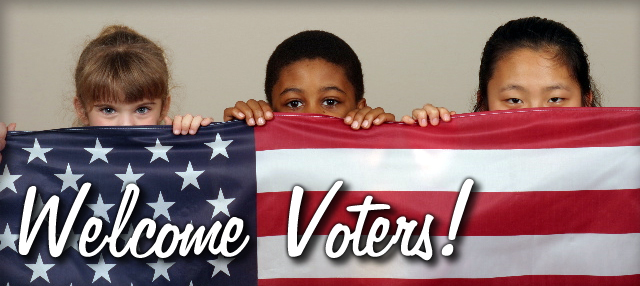During a roundtable discussion on an episode of Da Ali G Show, Ali G says to his guests, “Twenty years ago women didn’t have the vote, but now they is equal. Does you think in 20 years’ time animals will have the vote?”
Videos By Rare
“No,” says one guest. “It would be so hard to be able to prove that almost every animal that we know about could understand what they’re voting about.”
To which one might ask: Since when have we required voters to know what they’re voting about? Being informed, unlike being human, is not necessary at the ballot box. And in one D.C. suburb, neither is adulthood.
Last month Takoma Park, Md., became the first city in America to lower the voting age in municipal elections to 16. “Takoma Park is leading the way to a brighter and more democratic future,” said Bill Bystricky, executive director of the National Youth Rights Association. It has democratized democracy by codifying what Daniel J. Boorstin called “the prevalent belief in the superior wisdom of the ignorant.” “Brighter” and “more democratic” are not synonyms.
Councilman Tim Male, who spearheaded the effort, said that teens should have a “legitimate voice.” He and other enfranchisers seem to think that having a voice is de facto evidence of its legitimacy. But just because you have a voice does not mean it should be heard or respected. Besides, teenagers already have Facebook, Twitter, iPhones, a TV show called The Voice, and their own mouths. How much more voice do they need?
If we are to have a functioning democracy, we must have standards. And since a minimum IQ is out of the question, a minimum age is all we have left.
Sixteen-year-olds don’t need to vote for their local comptroller. Nor do they want to. Their enfranchisement was thrust upon them by a consort of politicians and not-so-young youth activists, who talk about listening to other people’s voices more than they actually listen to them.
One question they are not asking themselves is, why should people who don’t want to be represented be represented?
Most teenagers care far more about getting their driver’s licenses than they do about getting the “right” to vote. This suggests their priorities are in order. After all, driving will impact their lives more than voting will.
There is such a thing as democratic fundamentalism. One of its proponents, former New York Governor Al Smith, summed it up 80 years ago when he said, “All the ills of democracy can be cured by more democracy.” But democracy, for all its positive aspects, is not a cure for anything, and the fact that it is better than the alternatives does not mean it should be absolute. By letting 16- and 17-year-olds vote, you are not furthering the cause of democracy or making it more appealing. You are making it ridiculous by making it too easy.
People don’t value things that come easily. Teenagers value driver’s licenses at least in part because they have to study, however minimally, to get them. Similarly, immigrants have to pass a citizenship test to become American citizens. Voters, meanwhile, merely have to be human. Since we don’t require them to know anything, we might as well require them to be old enough to watch Da Ali G Show without parental supervision.
Windsor Mann is the editor of “The Quotable Hitchens: From Alcohol to Zionism” (Da Capo Press, 2011).

